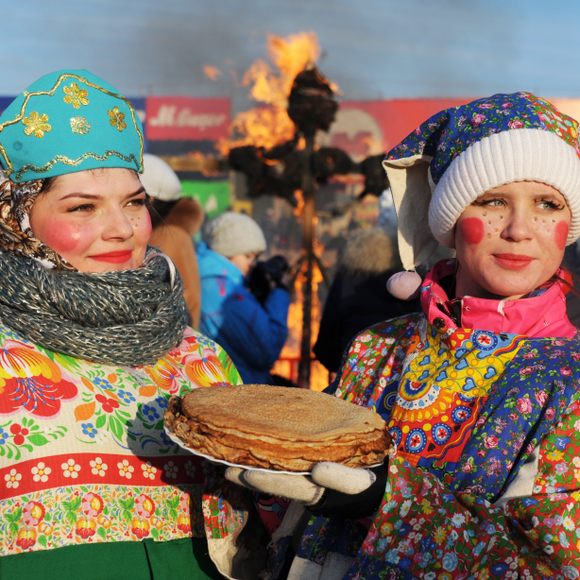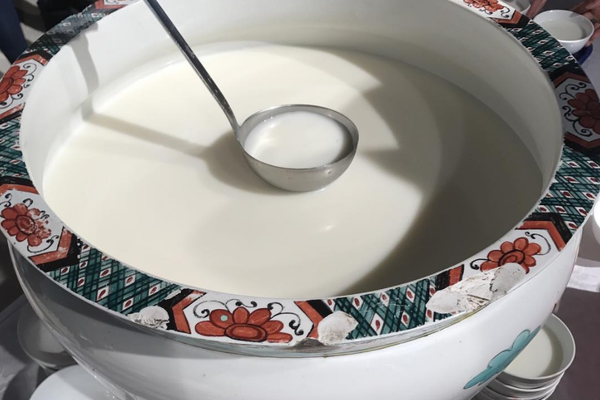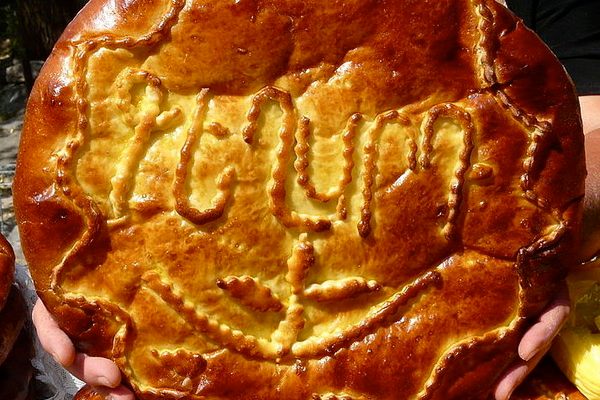Butter Week, or Maslenitsa, occurs the week before Russian Orthodox Lent begins. The Eastern Slavic folk holiday has ties to Christianity, but is rooted in ancient paganism. It bids winter farewell and ushers in spring. In keeping with other pre-Lenten periods of excess, such as New Orleans’ Mardi Gras, feasting is essential. And blinis, Russian pancakes, are the main item on the menu.
Blinis represent the sun, both in shape and temperature. Russians top the symbolic treats with sweet or savory accoutrements, ranging from sour cream and caviar to fruit preserves. No topping, however, is more important than butter. (Maslo, the Russian word for “butter,” gives the week its name.)
Though other Slavic countries observe the holiday, Russia takes the cake for elaborate partying. Since the collapse of the Soviet Union, families have taken festivities from the home to the streets—some of which are blocked off for merrymaking. Sleigh rides, snowball fights, organized fistfights (meant to honor Russia’s fighting spirit), and dancing bears all have their moment in the sun during Butter Week.
Celebrants commemorate the departure of winter by burning a straw effigy of “Lady Maslenitsa.” Why not a gentleman? The word for “winter” in Russian is feminine. If a fiery goodbye seems excessive, ice sculpture depictions are an acceptable substitute.
Written By
 rachelrummel
rachelrummel
Sources
- www.npr.org/sections/thesalt/2013/03/14/174097702/its-russian-mardi-gras-bring-on-the-pancakes-and-butter
- russiapedia.rt.com/of-russian-origin/maslenitsa/
- www.advantour.com/russia/traditions/maslenitsa.htm
- www.washingtonpost.com/world/europe/a-russian-city-stakes-its-claim-to-blini-the-pre-lenten-feast/2013/03/11/9e936588-87ec-11e2-9d71-f0feafdd1394_story.html?utm_term=.23b7fa3b65d7
- www.visitrussia.org.uk/blog/goodbye-winter-hello-spring/
- theculturetrip.com/europe/russia/articles/6-things-you-didnt-know-about-maslenitsa-russias-pancake-week/















